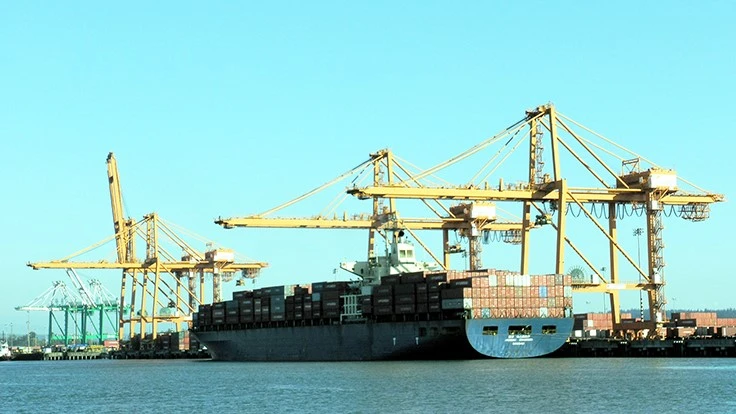
China's Ministry of Ecology and Environment (MEE) announced April 19, 2018, that China will ban imports of 32 types of scrap materials (which the MEE labels as “solid waste”).
Sixteen materials, including scrap metals considered “Category 7” such as motors and wire and cable scrap, will be banned from import beginning Dec. 31, 2018, MEE says in an online announcement.
Another 16 types, including some forms of stainless steel scrap, will be banned beginning Dec. 31, 2019.
The full list of banned materials is available online (in English).
The new policies follow earlier announcements to prohibit 24 categories of recyclable materials beginning Jan. 1, 2018, and the imposition of tighter quality standards on all scrap imports beginning March 1, 2018.
China began importing secondary raw materials in the 1980s and subsequently grew to become the world's largest importer of recyclables.
The Chinese government began taking action to phase out such imports in 2017, citing environmental concerns. Many recyclers and policy analysts, however, sense protectionism in the moves, since China’s government has indicated it is taking measures to replace the imports with domestic resources before the end of 2019.
Robin Wiener, president of the Institute of Scrap Recycling Industries (ISRI), Washington, will be in China in late April to obtain more information on the April 19 announcement and previous regulatory changes that came into effect earlier, the organization reports in an alert to its members issued April 19.
In a statement ISRI issued regarding the additional import bans, Weiner says: “The Chinese government’s announcement will have an impact on more than 676,000 metric tons, worth about $278 million, in U.S. scrap commodity exports to China in the first year and another 85,000 metric tons worth more than $117 million in the second year. Although we anticipated more import restrictions would be announced, we remain concerned about the effect these policies have on the global supply chain of environmentally friendly, energy-saving scrap commodities and will instead promote an increased use of virgin materials in China, offsetting the government’s intent to protect the environment.”
ISRI members can direct their questions regarding China's actions to Adina Renee Adler, who is the organization's senior director of government relations and international affairs.
Latest from Recycling Today
- BMW Group, Encory launch 'direct recycling’ of batteries
- Loom Carbon, RTI International partner to scale textile recycling technology
- Goodwill Industries of West Michigan, American Glass Mosaics partner to divert glass from landfill
- CARI forms federal advocacy partnership
- Monthly packaging papers shipments down in November
- STEEL Act aims to enhance trade enforcement to prevent dumping of steel in the US
- San Francisco schools introduce compostable lunch trays
- Aduro graduates from Shell GameChanger program





